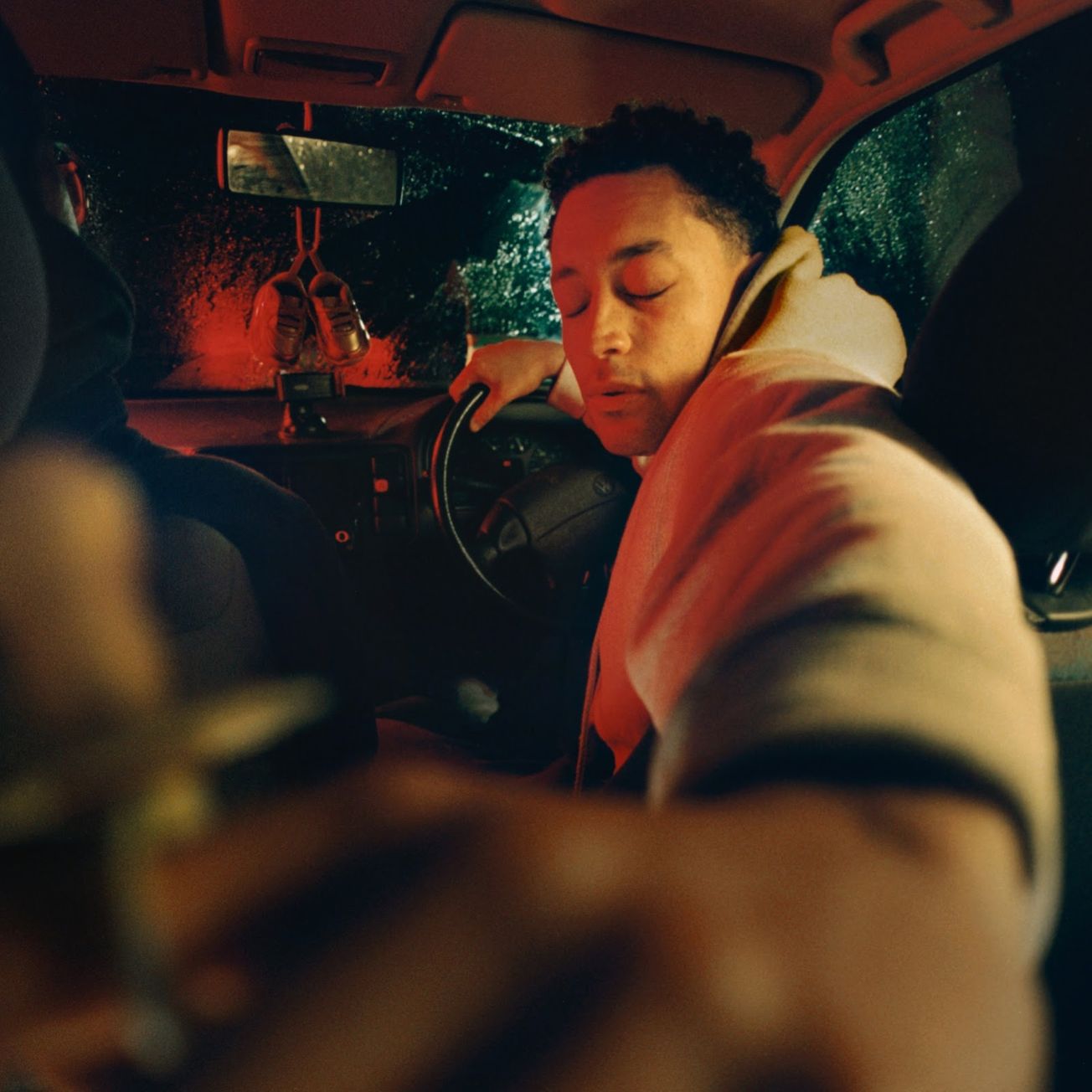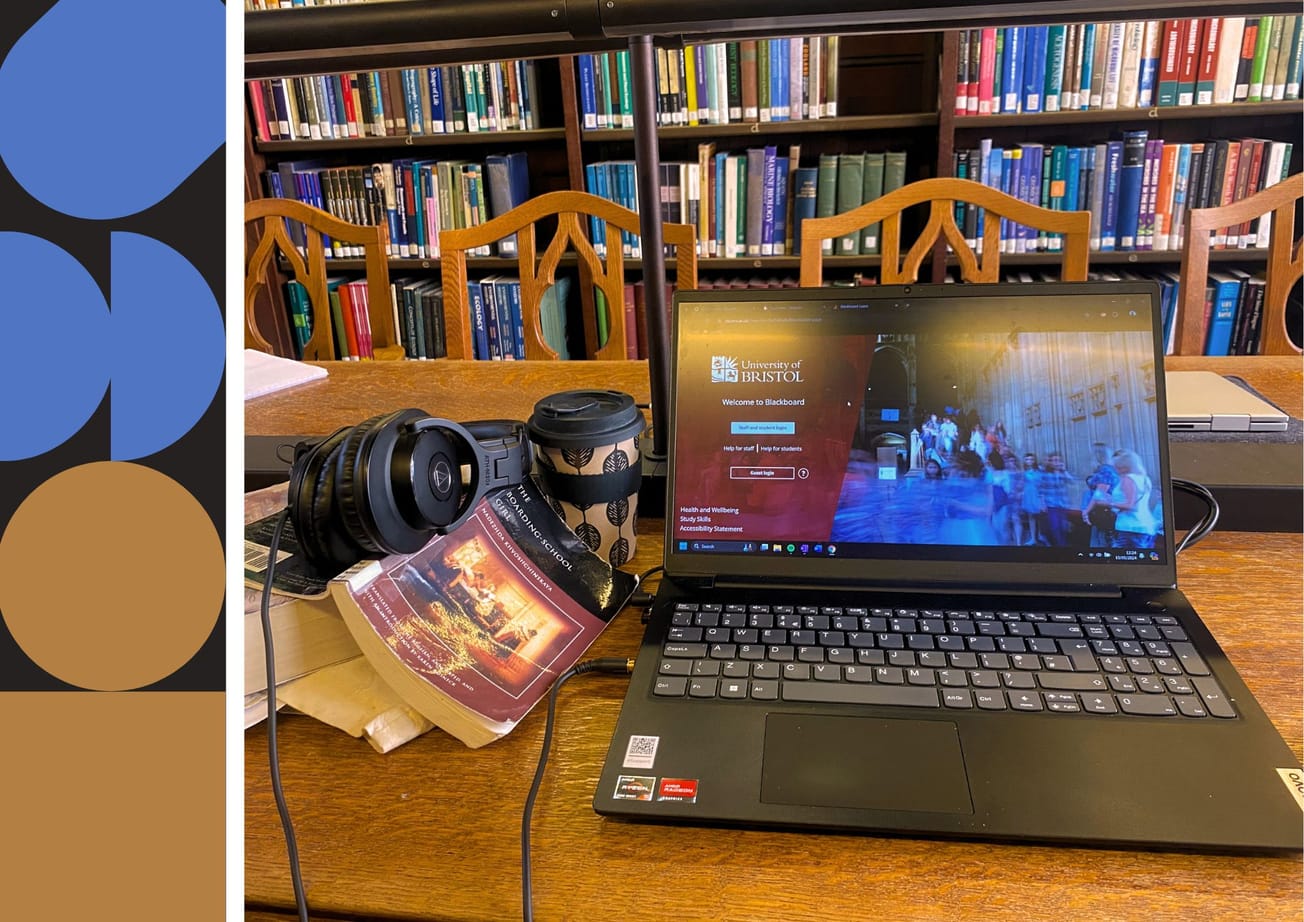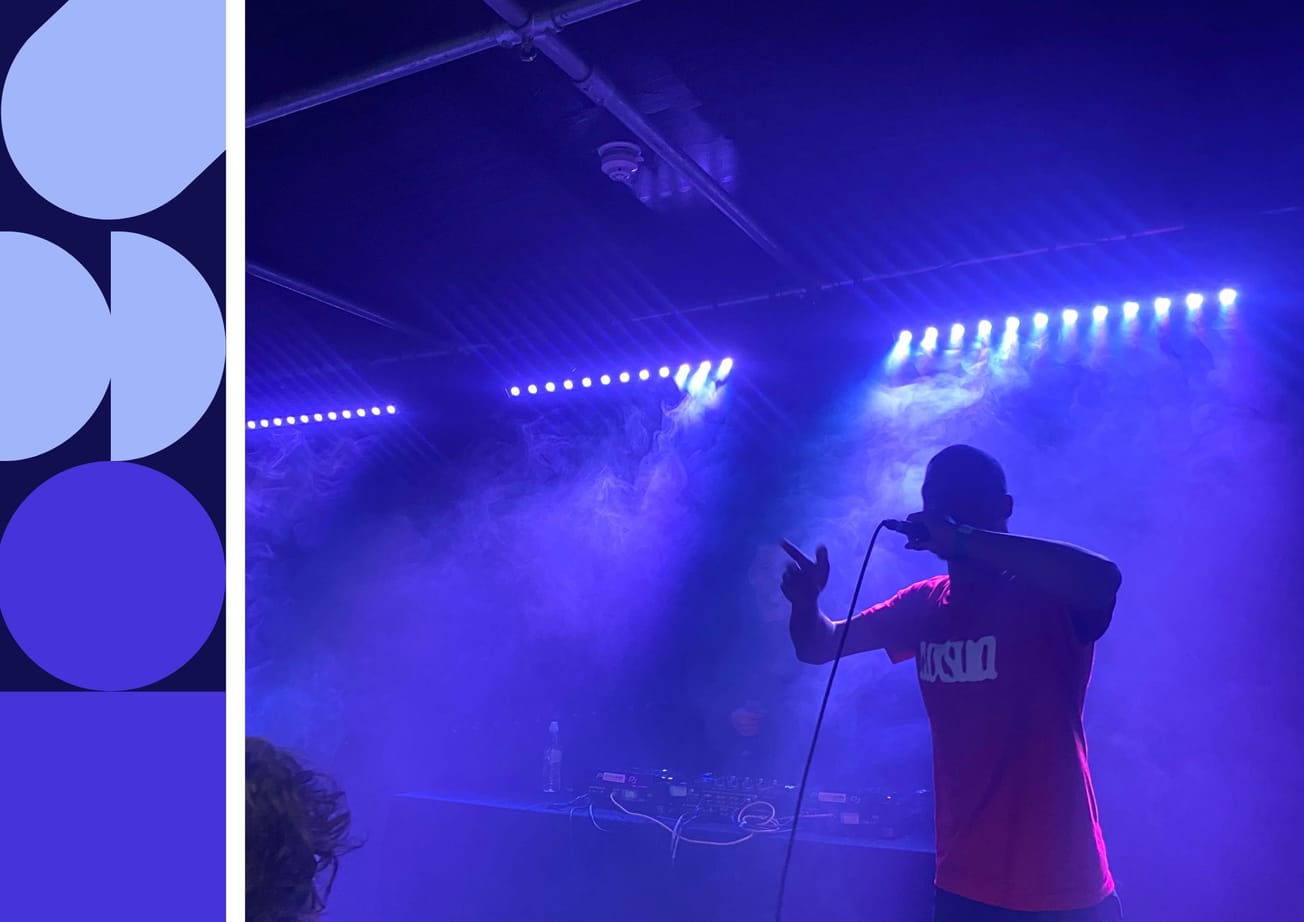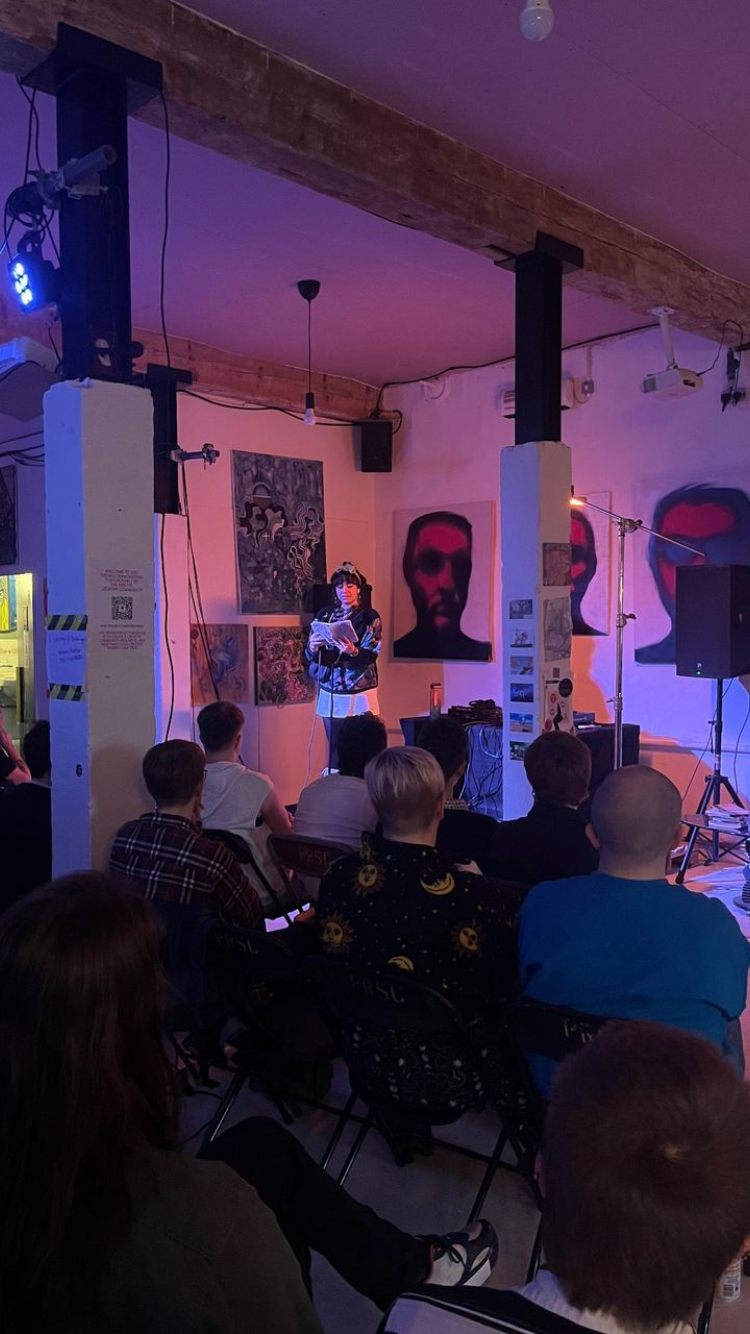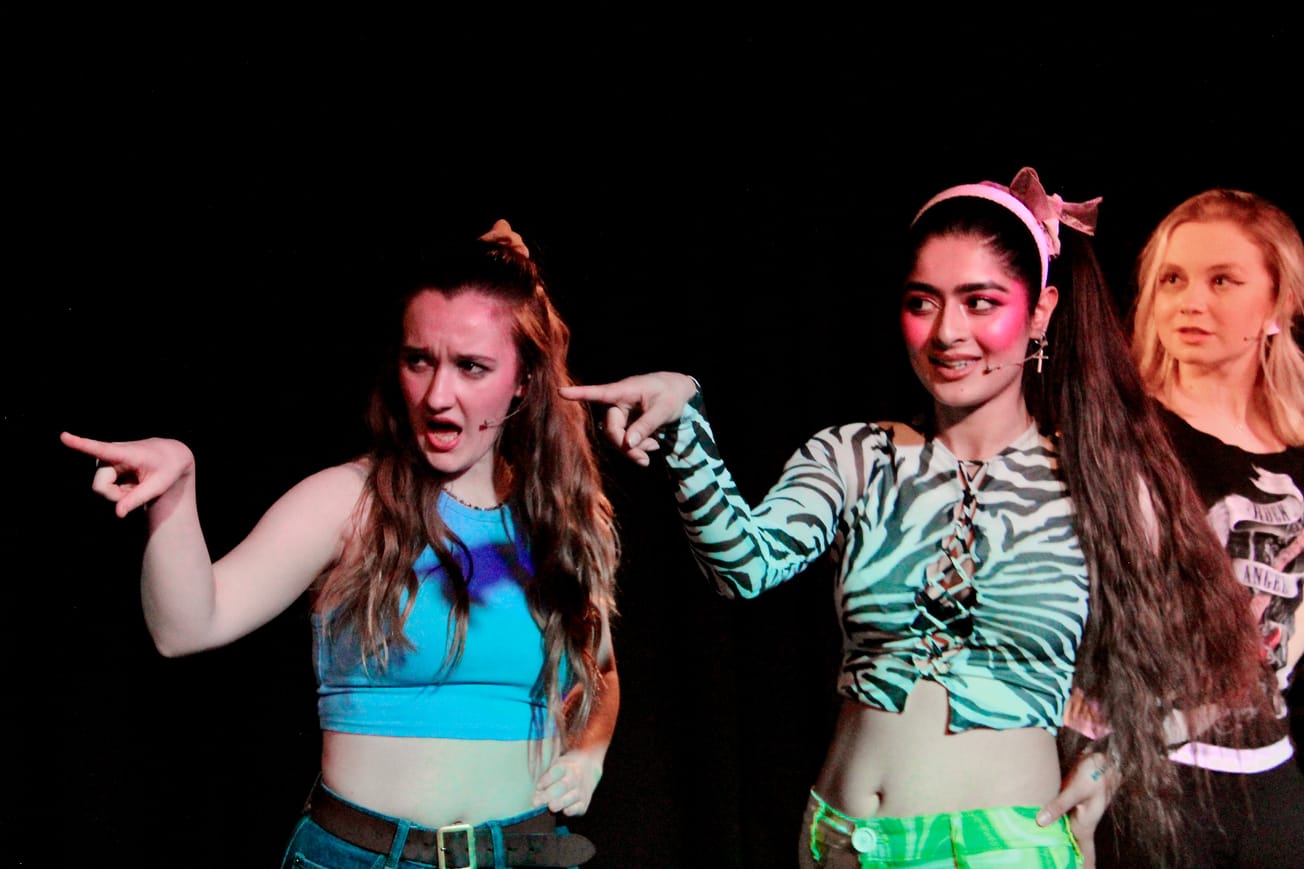Loyle Carner’s hugo is poetry for the impatient, and that’s why it’s amazing.
For those who don’t know him, stop reading, pull your head out from whatever desolate rock you’ve been listening to music under for the last seven years and listen to Loyle Carner right now.
In fact, here’s the link, listen as you read, you strange musical hermit :
Still, to give some context, hugo is Carner’s shortest project. With the first three songs on the album being pre-released singles, that only leaves seven new tracks for Carner’s fans to over-listen to. This is slim pickings in comparison to previous albums Yesterday’s Gone and Not Waving But Drowning which were full of new tracks and interludes, enough so that fans could compete with one another on knowing the nichest of interludes and outros.
However, as we all know, it’s not about the length of the album, it’s about how good it sounds, and trust me it sounds good. Carner uses new sounds as well as his classic style beats to powerfully poeticize his thoughts on manhood, fatherhood, race and knife crime, all in the one short sweep that is hugo.
Right from the start of hugo Carner shows he is not the chilled-out, train-hopping poet we are used to. The release of 'Hate' was a significant shift in Carner's sound, with fans either excited or left pining for their old Carner fix, and it's placement as an opening track is no small gesture. The album opens to eerie Madlib sampling, blaring, broken drums, and then:
“Let me tell you what I hate: Everything I ain't"
Loyle Carner - 'Hate'
This voice is not the same whimsical young man who laughed around in the booth with Tom Misch. This is something different. There is composed anger and pain beneath Carner's tone. He spits about the nature of hate, threading these bars close to those about his thoughts on love. He addresses one of the main themes of the album outright in the first line saying: “I hate the way you were saying I'd be great”. Carner knows what he is now, he knows his prestige and his fame, and he, like many other great artists, is not at home with it just yet.
Echoes of Carner's struggle with fame are found throughput the album. On 'Polyphilla' Carner remarks on the shifts in his life saying: “When I was younger I wanted to be famous. Now that I’m older I wish that I was nameless”. This lilting, intimate tune, laced with dusty drums and muffled piano is Loyle Carner. He speaks directly to his listeners saying how he's:
“Trying not to be the man I didn’t wanna be, to be the person that you wanna see”
Loyle Carner - 'Polyphilla"
This song is so full of brilliant, bright and poignant lines of poetry, it seems sort of pointless to write about it. Carner addresses his fame, his father and his image of himself over and over, with one distorted, trauma-screaming line standing out from the rest: “I used to say I hate the crib I hate the doors I hate the fridge, I hate this f******g house I live”.
In the chorus, Carner says that “The name's in the title”: weirdly enough Polyphilla is plaster-type paste used to fix small imperfections in walls and homes. Carner solemnly spits that “there's holes in every wall”. As with much of his music Carner also addresses issues of fatherhood, now a father himself he reflects even more on this, resulting in my favourite line of the entire album:
"They even killed The Wolverine, that was the only father figure that I’d seen"
Loyle Carner - 'Polyphilla"
'Polyphilla' is Carner's mistakes, his self-destruction, his past and his fears to repeat it. It is such a good track but, even though it's placed second to last on the tracklist, don't you dare skip ahead, there's much more to hugo than this song.
Alongside 'Polyphilla' (don't worry that's the last time I'll mention it...maybe), similar dusty-sunbeam tracks include 'Homerton (feat. JNR Williams and Olivia Dean' and 'Lasting Place':
'Homerton (feat. JNR Williams and Olivia Dean)' shows off Carner's ability to choose brilliant features to bring to our attention. East London's JNR Williams, who already worked with Carner and UK rap heavyweight Kojey Radical on the hard and fast grooving single 'LOST', shines through with his soulful tone, complimenting the ethereal and jazzy vocals from Olivia Dean on this cool, brass threaded track.
'Blood on My Nikes (feat. Wesley Joseph & Athian Akec)' also shows Carner's pointed use of features in this emotive commentary on knife crime. Wesley Joseph's droning, mourning chorus “Mama I lost a friend, mama I lost again” fades in and out of focus as Carner narrates his experience of watching a young boy die in front of his mother, unable to do anything, going on to describe his experience of fear of crime rates in London, spitting: “So I grew up, scared of the night-bus, scared of the boys who looked like us”.
But Carner isn't the focus of this track, neither is Joseph. The words youth activist, journalist and historian Athian Akec ring out in the final moments of the song. This is a recording from Akec's speech in The House Of Commons, highlighting the hypocrisy and failures of knife crime policing. Pointing out the lack of serious official responses to knife crime rates, Akec's final words leave the listener in sickened chills:
“Never before has so much been lost by so many because of the indecision of so few”
Athian Akec - 'Blood On My Nikes'
'Blood On My Nikes' stands beside hugo's other harder hitting tracks that show a different, darker side of Carner that we have not seen before. These are songs such as 'Speed of Plight', Carner's commentary on race, ambition and the difficulties getting where he is today and 'Plastic', a grooving eye-roll at societies’ fake attitudes, racial inequalities and throwaway culture: “Look at you with your plastic watch, yeah and your plastic whip, with your plastic friend and your plastic chick”
'A Lasting Place' has absolutely no right to be such a beautifully upsetting song. The song is cut in half by an intimate, bright afternoon kitchen set poem from what we can assume is Carner's wife speaking to their laughing infant son. The poem as a whole is debatably the best part of the song, but its closing line makes it:
“What kind of man becomes a father, A Lasting Place”
Loyle Carner - 'Lasting Place'
Beneath Carner's softly spoken, pensive bars plays a dreamy piano and sharp heartbeat drum machine loop, encircled by warm floating vocals and lullaby-like flutes and keys. This is the most open Carner has ever been on success and fatherhood, not just his own but manhood in general, reciting lines upon lines of complex imagery and self-reflections. He regrets “Sweet success that I can’t taste”, continuing themes of struggling with fame and notoriety, as well as its fading, saying how he's “Staring back are the reflections of an old man (but I don’t wanna be an old man)”. But for me, one line stands out above the rest (I cannot explain why):
“Me and the devil used to hold hands, and slow dance through the city through that cold sand”
Loyle Carner - 'Lasting Place'
All in all, I began this review by saying that hugo is poetry for the impatient. To put it in simpler terms: hugo is poetry for an impatient world. Carner himself, a rapper with ADHD and dyslexia has created a form of poetry accessible to a generation of people who grew up living in the space between their headphones, loving in lost moments between train rides and fighting their battles alone in their bedrooms. Carner has harnessed the sunset-melancholily of his previous work and set it alight with a new sound, an underlying anger, burning red.
I would usually give you a link to Loyle Carner's tour tickets, but it sold out in minutes. Good luck with the waiting list.
Photography Credit: Jack Davidson
Do you love Loyle Carner? Join the Epigram Music writers group to review and interview all your favourite artists.

